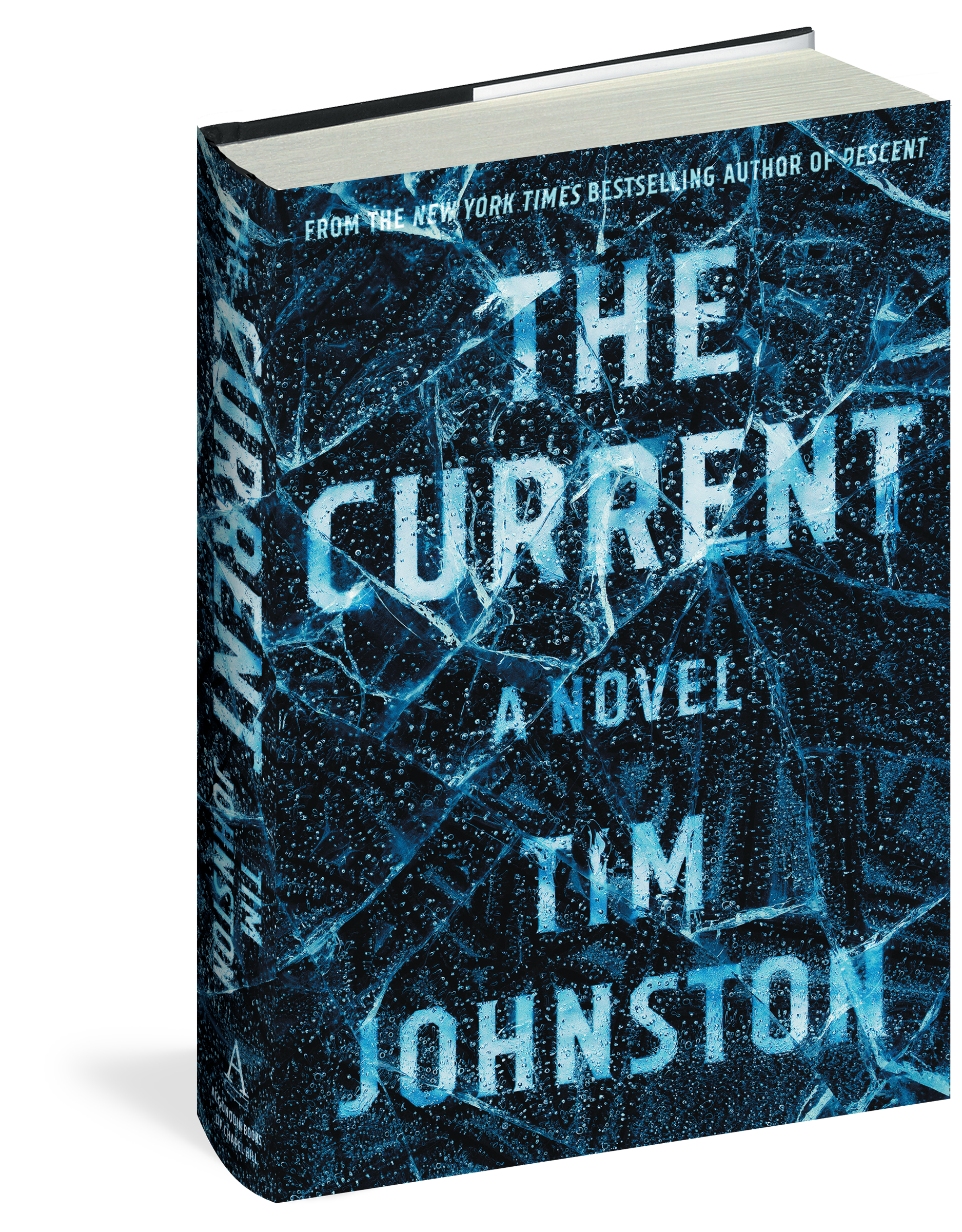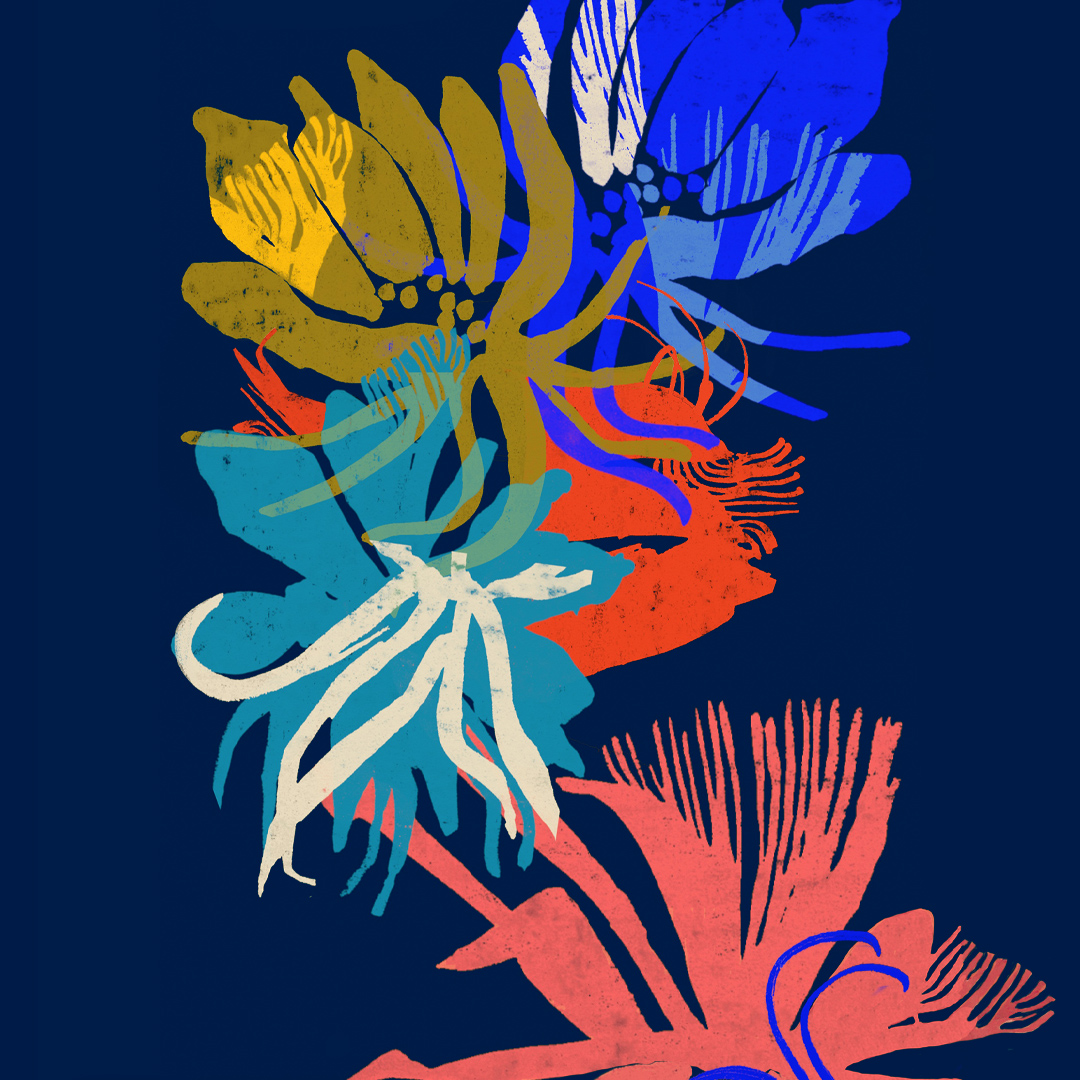Blue Ink: An Essay by Tim Johnston
Bestselling author Tim Johnston has done it again with his upcoming novel, The Current, centered around a shocking murder and its continued impact on the small Minnesota town where it occurred.
In addition to this tour de force novel, Johnston wrote an entertaining essay on the subject of childhood guilt and innocence, which you can read below:
• • •
After the divorce, it was settled that my little sister would live mostly with my mother, while my two older brothers and I would live mostly with our father. A lawyer himself, our father, tasked all at once with the rearing of three unruly boys, naturally fell back on what he knew, and as a result my brothers and I were exposed at an early age to the principles, and often the consequences, of due process. To what extent this parenting style shaped the adults we became is inconclusive: one son would grow up to become a lawyer as well, while another, taking an alternate path, would often need his brother’s services. No judgment here. Just the facts.
The youngest son would follow a third path altogether, becoming a writer of stories and novels. And while it’s true that the writer this boy became would be motivated by many of the themes and ideas of his upbringing—themes of guilt and innocence, for instance; ideas of perception and reasonable doubt, which are the qualifiers that make absolute fact, or objective truth, seem entirely impossible the moment the wheels of justice are set in motion—there was little evidence at the time that the boy was taking these concepts to heart. Or even that he recognized them when they were playing out before his very eyes.
Take, for example, the incident of the pulled fire alarm.
I was in middle school, and my friend Randy B and I were skipping second period, wandering the empty halls, when he dared me to pull the fire alarm. That is: he dared me to pretend to pull it. To put my hand on the little red handle as though I were going to pull it.
Not much of a dare, as dares go, except that we were standing just around the corner from the principal’s office, and that made it juicy. That made it irresistible.
The little red handle seemed to hum when I gripped it, like something alive. It wanted me to test it, to see how fixed it was, how resistant to pulling. And so I leaned back a bit, and I turned to give Randy a look, a smirk of victory—and was suddenly sitting on the floor. The alarm was blaring like the end of the world, and Randy, pausing just long enough to lock his eyes on mine, turned and flung himself toward the exit.
In those first stunned, surreal seconds, my feet and my heart and my brain were all in agreement: Get up and run, you idiot—and do not stop. But if I was a boy of considerable foot speed in those days—as any smart-mouthed little troublemaker had better be—I was also the son of a lawyer, a man who’d taught his children the meaning of right and wrong, the importance of lawful behavior, and the total irrelevance of all such things once you get busted. And it was that kid who knew that running, when the school fire alarm has been pulled, is exactly the worst—the most incriminating—thing you could do.
And so I walked. With that alarm clanging away in my heart I walked through the exit, made my way around the end of the building, and walked up to the students filing out and blended myself into their ranks. Randy had the same idea, I saw, but we did not speak and did not make eye contact. The important thing now was to stay cool. To wait for the all-clear, and to file back into the building with the rest of the students and go on with the day as if it were any other one.
And this I did, and with such faithfulness to character that, come fourth-period art class, fire alarm all but silenced in my heart, I got my hands on one of Miss P’s ink pads and set about staining my fingers a rich navy blue. Why? Because that was the kind of kid I was, and because this was just any other day.
Five minutes into fifth period, I was in the halls again—not skipping class this time, but on my way to see Vice Principal H, at his request.
I knew Mr. H well, and believed he harbored a kind of head-shaking fondness for me, thinking I was not a bad kid, not really, but only pretending to be one to get attention. He expected me to grow out of such nonsense, I understood, and, if not make something of myself, at least do the world no real harm.
On this day he waved me into his office and closed the door and told me to take a seat. He leaned on his desk awhile in silence, then sat down in the chair beside me.
“Let me see your hands,” he said.
I showed him, and we stared at my blue-stained fingers.
He asked how I got blue ink on my fingers, and I told him the truth: fourth-period art class, the borrowed ink pad. Idiotic, immature, to be sure, but hardly worth a visit to his office. But then he told me what happens when a middle school fire alarm gets pulled—it shoots blue ink onto the puller’s hand—and a series of realizations began to dawn on me:
- a) This visit had nothing to do with Miss P’s ink pad,
- b) If the alarm had indeed spat ink at me, it missed—perhaps because I’d fallen to the floor,
And c) What were the freaking odds that I would stain my own fingers on the day when a booby-trapped alarm had failed to stain them?
I knew I was guilty of pulling the alarm, and I knew Mr. H knew I was guilty of pulling the alarm, but all that mattered to me, the lawyer’s son, in that moment, was that the blue ink was not from the fire alarm. It was not proof of my guilt.
I wanted to get Miss P up here, I wanted to get those kids who’d witnessed my handiwork with the ink pad, but Mr. H had moved on—explaining that when the fire alarm gets pulled, the fire department is alerted and must respond, and that costs the school district a lot of money—a lot of money, he emphasized. A report of vandalism must be filed, and cops must be called in. Detectives . . . would I rather talk to a detective?
I did not want to talk to a detective. I wanted to talk to my lawyer.
And at that thought, the prospect of explaining all this to my father, Mr. H got his confession—a tearful, shameful one in which I swore it was an accident, I never intended to pull the alarm, I was just messing around. (I did not mention Randy B; I may have been a vandal but I was no rat.)
In the end my father was called, he and Mr. H talked, and I was sent home. Two days later I got the verdict: I was to see a child psychologist. A shrink. “It’s the best deal you’re gonna get,” my father told me, and I burned with shame and anger. That I was in fact guilty did not concern me. What mattered was that the evidence that had nailed me was entirely, randomly, freakishly circumstantial.
 In my new novel, The Current, a lawyer tells a young woman, “Justice is blind, but she also can’t see worth a shit.” Not to equate my little tale of school vandalism with what happens to this young woman, or any other injustices of real consequence in the real world, like wrongful conviction, like victims who are not believed, like the guilty walking free, but I can see the connection between that boy with blue ink on his fingers and the writer I’ve become. And as I wrote The Current, it was not so much the wheels of justice that drove the story, although those machinations do fascinate me; it was what happens the moment someone, somewhere, breaks the law. Or is accused of it. At that moment, due process is only one component—and possibly the least consequential—of the great wave of human behavior set in motion, the irresistible undertow of cause and effect as lives are pushed along toward actions and reckonings they never would’ve foreseen.
In my new novel, The Current, a lawyer tells a young woman, “Justice is blind, but she also can’t see worth a shit.” Not to equate my little tale of school vandalism with what happens to this young woman, or any other injustices of real consequence in the real world, like wrongful conviction, like victims who are not believed, like the guilty walking free, but I can see the connection between that boy with blue ink on his fingers and the writer I’ve become. And as I wrote The Current, it was not so much the wheels of justice that drove the story, although those machinations do fascinate me; it was what happens the moment someone, somewhere, breaks the law. Or is accused of it. At that moment, due process is only one component—and possibly the least consequential—of the great wave of human behavior set in motion, the irresistible undertow of cause and effect as lives are pushed along toward actions and reckonings they never would’ve foreseen.
I pulled that fire alarm. I did it. But all these years later I feel the pang of being accused of it—and confessing to it—for the wrong reasons. I wonder how I ended up in Mr. H’s office that day, really. Had word gone out to teachers to look for a kid with blue ink on his hands? Do school fire alarms even shoot blue ink when pulled, or had Mr. H, seeing the ink on my fingers, improvised that little detail on the fly? If so, my hat is off to the man.
Or did Randy B, whose name I never mentioned to Mr. H, rat me out?
Innocence and circumstance play out in many ways, sometimes benignly, sometimes with dire results.
In real life, two boys wander an empty school hallway. There are consequences.
In The Current, a young woman walks a dark road at night, by a river. Lives are changed forever. Ten years later, two young women stop for gas in the middle of the night, in the middle of nowhere. There’s time and place, and there’s deciding to do one thing and not another—that moment of choice—and then there’s everything after.




